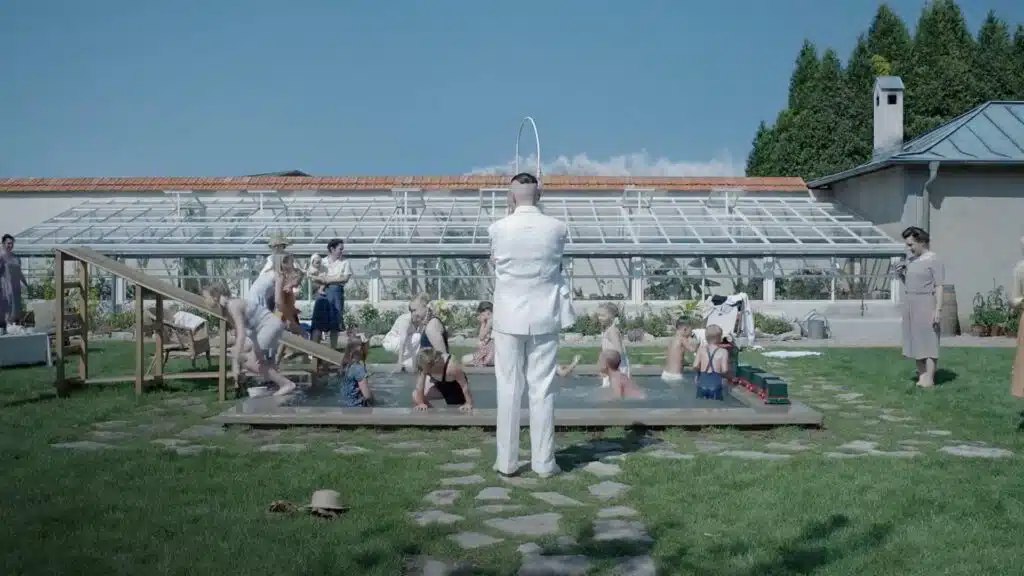By Leah Eichler,
As a teenager, my mom used to treat me to a manicure if I promised to stop biting my nails. I bit them as soon as I could fit a sliver of nail under my teeth. I bit them even with the polish meant to taste like gasoline. I bit them until they bled.
When I could manage to restrain myself for a short while, my mom would take me to see the Hungarian lady who worked above the grocery store a short bus ride from our house, where she would apply a thin white line on the tip of my nail plate to emulate an edge. Even the name sounded fancy: French manicure.
She and my mother normally spent the time speaking in rapid-fire Hungarian that I couldn’t understand but one day, my mother left me alone with her.
We began to talk. She knew I was going to Poland in a few weeks to visit Auschwitz and commemorate the Death March to evacuate the camp once the Soviets were closing in. My grandmother survived that death march. The aesthetician knew her well. She did her nails, too.
“It was a huge tragedy. A terrible loss of life,” she said in her heavy accent, applying the topcoat. “And just think, none of this needed to happen if the Jews hadn’t of started the war.”
I thought of her recently when I watched The Zone of Interest. Not that my former aesthetician was a Nazi — far from. But what amazed me then (as it amazes me now) are the lies we tell ourselves to get by in a sinister world.
For those who don’t know The Zone of Interest, which won the Oscar for the best international film at the 2024 Academy Awards, it presents a snapshot in the lives of Auschwitz commandant Rudolf Höss, his wife and their five children as they build their dream life in a villa and garden that shares a wall with the concentration camp.
Incidentally, the film (based passingly on a novel by Martin Amis) captures the time in which the Nazis were busy organizing the logistics of deporting and massacring Hungary’s Jews, which is depicted in all its bureaucratic glory. It was gut-wrenching, when Höss (played by Christian Friedel) grew animated discussing the bureaucratic challenges of exterminating so many people not to imagine my grandmother and our family on the other end.
Throughout the film, you don’t see what’s happening inside the walls of the camp, but you hear them. (The film rightly won the Oscar for best sound.)
What reminded me of my old manicurist in particular was Hedwig’s mother, who comes to visit her daughter and grandkids at their villa in Auschwitz. She’s pleased by her daughter’s upwardly mobile station in life. On her arrival, she jokes about their old neighbours, a Jewish family for whom she used to clean, and wonders if they are in the camps now. She laments being outbid on their drapes. In her voice, there is a distinct tone of justice being served, or at least a wrong being righted. Helga and her family are where they are meant to be; so are the Jewish neighbours.
After a few days, Hedwig’s mother abruptly leaves, no longer able to tolerate the sounds coming over the wall, and the crematorium that spits out ashes and smoke around the clock. This isn’t her developing a conscience, but rather doubling down on her denial. Glazer explains in an FT interview:
“It’s no different, to someone like her, to buying your steak at Sainsbury’s and going to an abattoir. You know where that steak comes from, but you don’t really want to be around a cow being slaughtered or the smell of it, or have the blood running over your shoes.
What they were interested in: status, family, health, holidays, possessions are no different to the things most people want . . . The Hösses weren’t born mass-murderers. They were teenagers in love with ideas about the future. That’s how they started. And look where they ended up. There’s a warning in that.”
In fact, for a director, Glazer spent a lot of time in interviews over the last year, telling us how to read the film. True to form, he told us again last night during his Oscar acceptance speech:
“Our film shows where dehumanization leads, at its worst. Right now we stand here as men who refute their Jewishness and the Holocaust being hijacked by an occupation which has led to conflict for so many innocent people. Whether the victims of October the 7th in Israel, or the ongoing attack on Gaza, all the victims of this dehumanization, how do we resist?”
The Objective of Perpetrator Fiction
Ironically, the objective of (good) perpetrator fiction is to explore the role of the individual to society at large. It doesn’t reduce Nazis to archetypes or fetishize them, but asks important questions about how these events came to be.
In my view, the main drive of perpetrator fiction is to move beyond the two-dimensional face of evil that can be seen in more casual representations of Nazism in order to lay bare the fundamental humanity of those involved in perpetrating the genocide. This process of humanization allows us to move beyond simplistic explanations of culpability (s/he did it because s/he is evil) and explore the range of social, psychological and political conditions that enabled genocide to occur. Such an approach opens broader questions about the role and responsibilities of the individual in society and, by extension, it challenges the reader to consider their own capacity for wrongdoing, wrote Joanna Pettitt in The Journal of European Studies.
While Glazer reiterates that objective, to look inward, it’s the emphasis on humanization that intrigues me. It’s not that we want to humanize perpetrators in order to explain away their decisions, but to demonstrate how easily the rest of us can fall into the same trap.
Why Now?
Glazer invoked the war in Gaza in his acceptance speech but will the film allow us to humanize Hamas militants? How about the Israelis conscripted for duty? My instincts tell me that we could watch the Hösses for days on end as if they were on a bizarre reality TV show, but few of us will ever see ourselves in their images. Human imagination can only take us so far.


